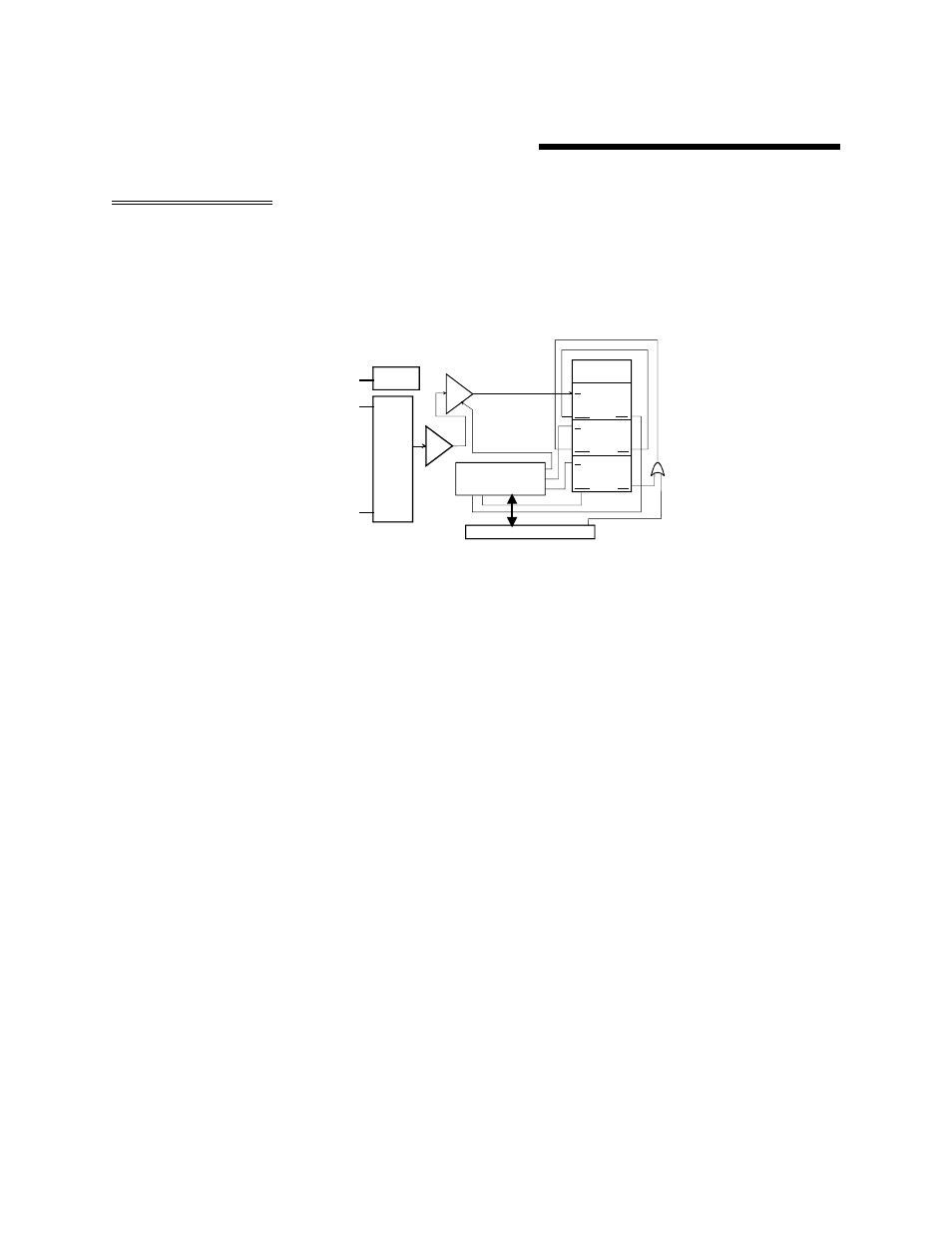Theory of operation, Overview, 5 theory of operation 5.1 overview – Measurement Computing CIO-DAS-TEMP User Manual
Page 9: Amps)) kelvin = fout / 4000

5 THEORY OF OPERATION
5.1 OVERVIEW
The CIO-DAS-TEMP is composed of a C urrent to Voltage (C/V) converter, a Voltage to F requency
(V/F) converter, a channel multiplexer, a sensor excitation power supply and control registers (see Figure
5-1).
Sensor Power
Supply
I to V
V to F
Clock & Pescaler
32
C
ha
nn
el
M
ult
ip
le
xo
r
AD 31
AD30
AD29
AD28
AD27
...
...
...
AD6
AD5
AD4
AD3
AD2
AD1
AD0
ISA BUS INTERFACE & CONTROL LOGIC
4MHz
2MHz
Prescaler Out
82C54
Counter/Timer Ctrl
CTR 0
V to F Output
Counter
CTR 1
V to F Period
Counter
CTR 2
Timer
IN
OUT
GATE
OUT
OUT
GATE
GATE
IN
IN
V to F Clock In
Software Trigger
The temperature signals,
connected to the channel
multiplexer, are converted
from a current to a voltage
then from a voltage to a
frequency. The frequency is
determined by counting
pulses from the V/F for a
given period. The frequency
is use to calculate the
temperature.
Figure 5-1. Board Block Diagram
The C/V converter has an output of 0 to 10 volts, which corresponds to the full scale of the current input
or 0 to 500
µA. This input range may be customized at the factory by changing one resistor and one
potentiometer. Please call if you have applications requiring up to 0 to 20 mA input.
The V/F converter has an output of 0 to 2 MHz, which corresponds to the full scale of the voltage input
of 0 to 10 volts. An AD592 sensor will produce frequency in the range of 992 kHz (
−25°C) to 1.512
MHz (105°C). Other sensors such as the AD590 (
−55°C to 150°C) may be used as well. The equation
for temperature is:
Kelvin = ((10 Volts) * (Fout)) / ((20,000Hz) * (20,000 Ohms) * ( 1 * 10
-6
Amps))
Kelvin = Fout / 4000
5
